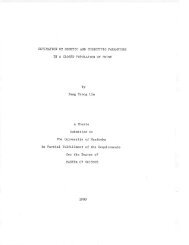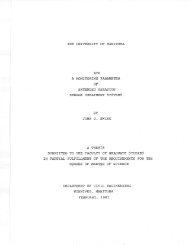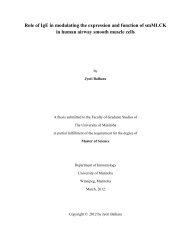A STUDY IN LEGAL ADMINISTRATION AND RECORDS SHARON ...
A STUDY IN LEGAL ADMINISTRATION AND RECORDS SHARON ...
A STUDY IN LEGAL ADMINISTRATION AND RECORDS SHARON ...
You also want an ePaper? Increase the reach of your titles
YUMPU automatically turns print PDFs into web optimized ePapers that Google loves.
Equity rehearings is not discemible from the index. The researcher is obliged to<br />
locate them by leafing through the pages of the volume. The first rehearing<br />
occurred December 3, 1888 and was minuted thus:<br />
December 3rd, 1888.<br />
Balfour<br />
v<br />
Drurnrnond Equity Re.Hg. (2 appeals)<br />
Howell C. and Vivian for the Plaintiff.<br />
Hough for Drurnrnond.<br />
Muloch for Slaven.<br />
Culver for Williams.<br />
Perdue for Brathwaite.<br />
Wilson for Harvard and Van Worthe.<br />
Ptffs. appeal stands until Dfts. appeal heard.<br />
Mts. Slaver, Williams, Brathwaite, and Van Worthe<br />
appealing. Culver took up argument. Muloch took up<br />
argument. Court adjoumed until 12 o'clock.<br />
[The hearing continued next day with the following minutes:]<br />
Culver cited some authorities.<br />
[?] continued argument.<br />
C. P. Wilson took up argument.<br />
The prothonotary fell asleep.<br />
Equity proceedings produced four different types of decrees: decrees<br />
(general), decrees for sale (without reference), decrees with reference, and<br />
decrees for foreclosure. Master in Chancery William Leggo explained the<br />
decree:<br />
A decree is a sentence or order of the Court,<br />
pronounœd on hearing and understanding al1 the<br />
points in issue, and determining the right of al1 parties<br />
to the suit, according to equity and good conscience.


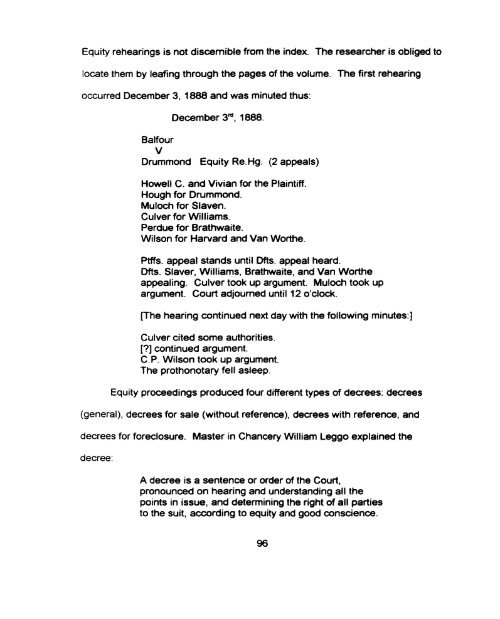
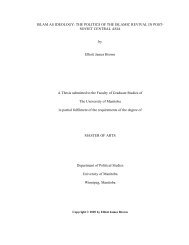
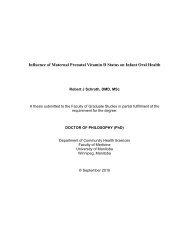
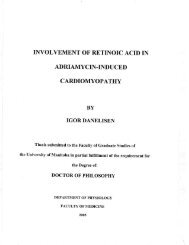
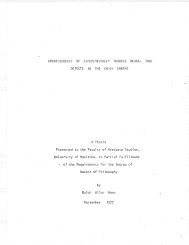
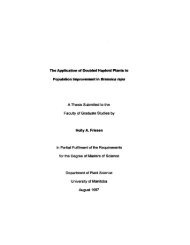
![an unusual bacterial isolate from in partial fulf]lment for the ... - MSpace](https://img.yumpu.com/21942008/1/190x245/an-unusual-bacterial-isolate-from-in-partial-fulflment-for-the-mspace.jpg?quality=85)
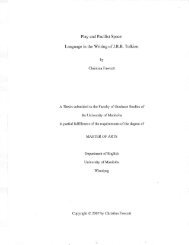
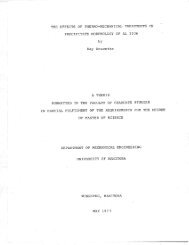
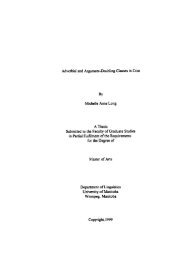
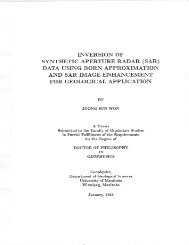
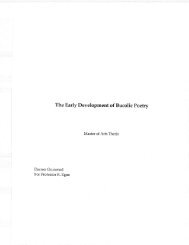
![in partial fulfil]ment of the - MSpace - University of Manitoba](https://img.yumpu.com/21941988/1/190x245/in-partial-fulfilment-of-the-mspace-university-of-manitoba.jpg?quality=85)
